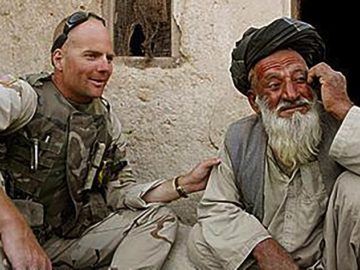Kit Parker in Harvard Magazine:
 AFGHANISTAN MAY NOT BE A NATION to be stabilized. It is a diverse and difficult space with little sense of collective or shared fate. Illiteracy is still endemic, even after our intervention—as is the ceaseless violence. And the idea of a centralized executive leadership on the Western model, with its hierarchical architectures and responsibilities, with occasional exceptions, is just antithetical to Afghans. At least that is the history. And yet despite being at war for centuries, Afghans are neither defeated by nor do they defeat their invaders. Rather, Afghanistan has been abandoned by invaders dating back to Genghis Khan. No matter the magnitude and duration of the invasion, Afghanistan remained unchanged in key ways.
AFGHANISTAN MAY NOT BE A NATION to be stabilized. It is a diverse and difficult space with little sense of collective or shared fate. Illiteracy is still endemic, even after our intervention—as is the ceaseless violence. And the idea of a centralized executive leadership on the Western model, with its hierarchical architectures and responsibilities, with occasional exceptions, is just antithetical to Afghans. At least that is the history. And yet despite being at war for centuries, Afghans are neither defeated by nor do they defeat their invaders. Rather, Afghanistan has been abandoned by invaders dating back to Genghis Khan. No matter the magnitude and duration of the invasion, Afghanistan remained unchanged in key ways.
When I got to Afghanistan in 2002, the most high-tech widget I saw in the rural villages of Kandahar Province was an AK-47. The second most? The wheel. The villages were roughly out of the twelfth century. When I returned for subsequent deployments in 2009 and 2011, I saw that there had been an infusion of cell phones, internet cafes, paved roads, media, and more that we, the Coalition, had facilitated through aid and commerce. But the Afghans had no organic capacity to develop or sustain these trappings of twenty-first-century society, and the powers-that-be in the Coalition continued to largely ignore this fact. Watching the deployment of sophisticated helicopters and other equipment to the Afghan National Army left me with a sense of dread and anger—at our miscalculation that our modern “toys” would somehow “fix” Afghanistan.
More here.
